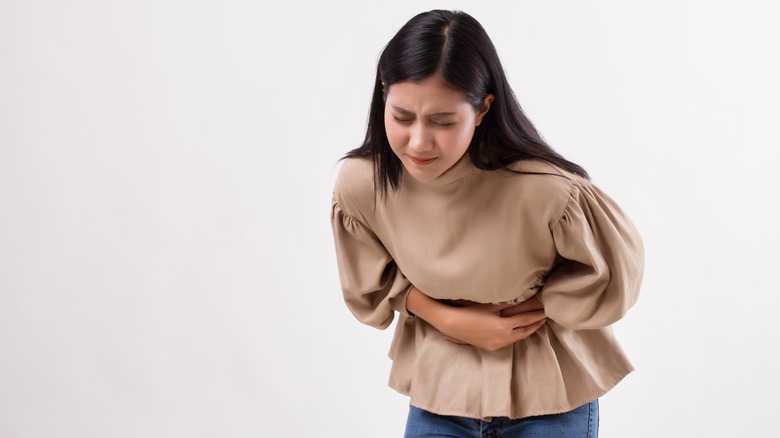Here's How Long Food Poisoning Usually Lasts
Food poisoning is a foodborne illness that affects 1 in 6 Americans every year, according to the Centers for Disease Control and Prevention, and is caused by eating spoiled or contaminated food. In most cases, food poisoning is the result of food contaminated with bacteria like E.coli and salmonella, but viruses and parasites can also be responsible for food poisoning (via Healthline). Symptoms of food poisoning can vary depending on what is triggering them and can occur within hours of eating contaminated food.
Common symptoms of food poisoning include nausea, vomiting, diarrhea, mild fever, loss of appetite, abdominal pain, weakness, and headaches. The duration of these symptoms can vary from person to person, but they typically last around two days.
While most cases of food poisoning resolve on their own, some people may experience severe and potentially life-threatening symptoms, like bloody urine, a high fever, difficulty seeing and speaking, severe dehydration, and diarrhea lasting longer than three days. If you think you have food poisoning and are experiencing any of these symptoms, contact your doctor immediately.
How to prevent food poisoning
You can try to prevent food poisoning by making sure your food is stored and prepared properly. While there is no way to guarantee that you will never get food poisoning, following a few food safety tips can help reduce the likelihood that you'll end up eating contaminated food.
One of the most important steps you can take to prevent food poisoning is to wash your hands before and after preparing a meal (via Mayo Clinic). Washing your hands with soap and warm water can help get rid of any harmful germs and bacteria lingering on your skin.
Additionally, you should separate raw foods from cooked, or ready-to-eat, foods. Using separate cutting boards to keep raw meat, fish, or poultry away from items that have already been cooked can help prevent cross-contamination.
It's also important to cook your food thoroughly. Cooking your food to a safe temperature can help kill any harmful bacteria. For example, you should cook ground beef to 160 degrees and chicken to 165 degrees. If you don't know if you're cooking your food to the right temperature, you can try using a food thermometer.


